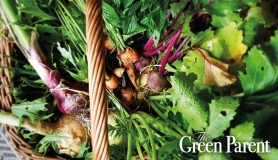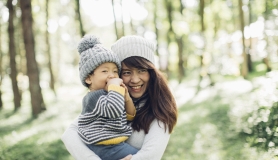Like most families, our path to unschooling was not a straight one. It took us several years to finally reach a place that felt coherent and healthy. We tried alternative schools, a short-lived home-ed co-op, and some clumsy attempts at self-directed education, along the way.
When we took our children out of school, we had a pretty good idea of what we wanted to create for them. Essentially we were driven by the desire for our children to be free to be their authentic selves. We wanted to allow them to take life at their own pace and to have time to explore the things that were meaningful to them. With these aims in mind, we came to the conclusion that any schooled parent would come to. That we would make this happen. That we would do all the right things.
And so, I spent long evenings researching local activities and creating lists of museums and workshops. I scheduled busy days to make sure no one got bored. And, if someone expressed a passing interest in Romans, flowers, sharks, photography or whatever, I’d be straight onto Amazon to buy the book. Everything was a potential learning experience to be squeezed and exploited.
FOLLOWING THEIR FLOW
This approach to home education was stressful and (thankfully) short-lived. Museum trips happened every now and again. The workshops didn’t interest anyone and the books began to gather dust. Whilst I fretted that our days weren’t interesting enough, my children had no problem getting on with their lives at home. For them, it was natural and effortless to follow the ebb and flow of the day, choosing to do what made sense to them at each moment, delving deep into their interests, moving on when they had had enough. Children are born unschoolers. They know how to follow a passion and how to simply be in the moment without worrying about what comes next.
Adults are rarely so free. Decades of social conditioning around parenting, childhood, school and learning make us reactive and worried. We need approval, we’re scared to get things wrong, and we are filled with ‘what ifs’. Our inbuilt belief tells us that the busier we are, the more we are achieving. So, whilst schedules filled with activities might be stressful, they are also reassuring and mask our fears. In the words of unschooling pioneer, John Holt, “To trust children we must first learn to trust ourselves… and most of us were taught as children that we could not be trusted.”
And so, even when we are outwardly confident, we often doubt ourselves and, consequently, we doubt our children. John Holt was right. How can we trust that our children know their own minds and can follow their own passions, when we ourselves are so weighted down by fears and other people’s expectations? Letting go couldn’t be easier and it couldn’t be harder.
“I found out that unschooling is less about finding things to do, and more about creating a space within which things are free to naturally arise”
THE LETTING GO PROCESS
Some months into our new life without school we moved to an old house in the hills. From this quiet, unrushed vantage point, I finally started to let go, and as I did, I began to see all the things that were happening, slowly but surely, without me forcing them. So many new interests and hobbies came alive that year, all born and nurtured in that still space, each one intensely meaningful to the person who had discovered it. I realised that learning is not a linear process to be forced from the outside. It is a gloriously intricate network of experiences, knowledge and thoughts, willingly acquired from all sorts of different places and inseparable from the person themselves. It is a quiet, unstoppable force that has no timetable and requires no coercion. On some days it is loud and purposeful, and on others it is barely noticeable, but it is always happening. In that time in our house on the hill, our children became experts in all sorts of things, from dog breeds to coin collecting, Ancient Rome and cryptocurrencies. Their curiosity for the world often translated into long family conversations and debates in the kitchen. I was, and still am, constantly amazed by their knowledge and wisdom. It is vast and unquantifiable, and deeply meaningful to them.
MINDFULNESS IN ACTION
I found out that I am not needed in the way I thought I would be. That unschooling is less about finding things to do, and more about creating a space within which things are free to naturally arise. For a parent who, like myself, has had to unravel decades of conditioning, unschooling is mindfulness in action. Accepting whatever comes, without judging or trying to control the outcome, finding the meaning in things as they unfold, and not reacting from a place of fear. These were new capacities that required me to address my triggers, take deep breaths, and respond to life from new ground.
The most helpful things that I have done for my children have not been the planning of activities, the hours of research or even all the reading around self-directed learning. The most helpful things I have done in all of this have been those that have quietened the fears and kept the triggers at bay. Morning meditations, self-compassion practices, long walks in nature and the slow untangling of all my old paradigms, until I eventually arrived in this place where I have finally learned to trust myself.
MINDFUL PRACTICES FOR DESCHOOLING PARENTS
WATCH YOUR BODY
We all have those triggers that send our nervous system into fight or flight. A sibling fight, a child who is bored, a lot of time on a screen. A trigger will often come with a response in the body, such as a tightening of the shoulders, or butterflies in the stomach. Learn to recognise them when they arise and, rather than responding to the situation from that tense, reactive place, give yourself a virtual hug and stay with the physical sensation until it passes. Recognise that this may well be an old script playing out in your head, and perhaps has little to do with your children. Each time you resist reacting to the trigger and stay present in the moment, you’re rewriting the script.
It took me a long time to get over a sense of dread when someone told me they were bored. ‘You’re doing this all wrong!’, a little voice in my head would scream, and it took everything I had to not jump in and try to manoeuver things to a place that felt more comfortable to me. Over time, I’ve realised that boredom is many things, and although suggesting something to do might be just right, many times what is actually needed is a moment of connection, a hug, or just some space.
OBSERVE WHAT YOUR CHILDREN ARE DOING
When we have preconceived ideas about what our children should be doing, we tend to miss what they are actually doing. Perhaps your children aren’t doing what you hoped they would do. Maybe you’re concerned because no apparent learning is happening. Rather than try to redirect them, take a closer look at what they are engaged in. What are they getting from their experience? They have chosen this activity because it satisfies something in them and it has a value to them. Try to see it through their eyes.
SINK INTO THE PRESENT MOMENT
The real joy of unschooling is in the present moment, so it follows that the more alive we are to the moment, the more joy we’ll find. A child immersed in play, a joke, an unexpected moment of connection. When you stop worrying if it is all enough, you are free to see and enjoy the beauty of these moments. It’s all too easy to miss real life.
ZEN MIND. BEGINNER’S MIND
None of us ever stops learning. By staying curious and open to discovery, you’ll avoid bringing new assumptions and preconceptions to your days. It’s natural for us to want to keep defining things and to want to feel like we have it all figured out. That’s a reassuring feeling, but it is also a sure-fire way to suck the magic out of it all, and to create the pressure of new expectations. Embrace beginner’s mind and the knowledge that this learning journey is never over.
TRY HOLDING BACK AND SEE WHAT NATURALLY UNFOLDS
I noticed that oftentimes my interventions, even when cheery and positive, were not particularly useful, and were likely to disturb the flow of whatever was happening. My children don’t need my constant cheerleading or commentating on the things they do. Make intervening a conscious choice, rather than an automatic reaction that satisfies the need to be a ‘good’ parent.
FIND A MINDFULNESS PRACTICE
Incorporating meditation, mindful breathing or yoga into your daily life will help you stay calm and grounded, and less likely to be reactive when challenging moments arise. A couple of years before taking our children out of school, I had begun to meditate in the mornings. And when we really embraced unschooling, I found that my morning routine of meditation and writing gave me a sense of clarity and space that facilitated my own deschooling process.
LOOK AFTER YOUR OWN NEEDS
Being mindful in your parenting doesn’t mean sacrificing yourself. Holding a compassionate space for others requires you to take care of yourself. If you are on a short fuse or feeling discouraged, think about what you might need. Perhaps a long walk in nature, or some time alone will help you rebalance. Stay alive to how you feel, and see what adjustments you can make to your days to allow you to take good care of yourself too.
REMEMBER THAT YOU’RE YOUR CHILD’S BEST EXAMPLE
If taking time for yourself or prioritising your own needs makes you feel guilty, remember that how you live your life is a powerful example for your children. Would you like your child to be able to express their needs, take care of themselves, and follow their passions? Would you like them to find joy in their lives as adults? Then don’t feel guilty when you make time for the things that bring you joy. Plus, that deep sense of connection and wellbeing we feel when we tap into simple, life-affirming happiness is part of a complex system. – the dopamine and serotonin we release help us manage stress and boost our immunity. Whether it’s reading poetry, singing, cycling, or just doing nothing, show your children that happiness and wellbeing really do matter.
Esther Jones lives with her partner, and three children (15, 13 and 9), in East Sussex. Their journey into alternative education and unschooling began in Spain, where her children were born. She blogs about her family’s journey at aplaceonahill.com and runs the podcast, The Unschool Space.
PHOTOGRAPHY Amy Hoogerbrugge instagram.com/amyhoogerbrugge







